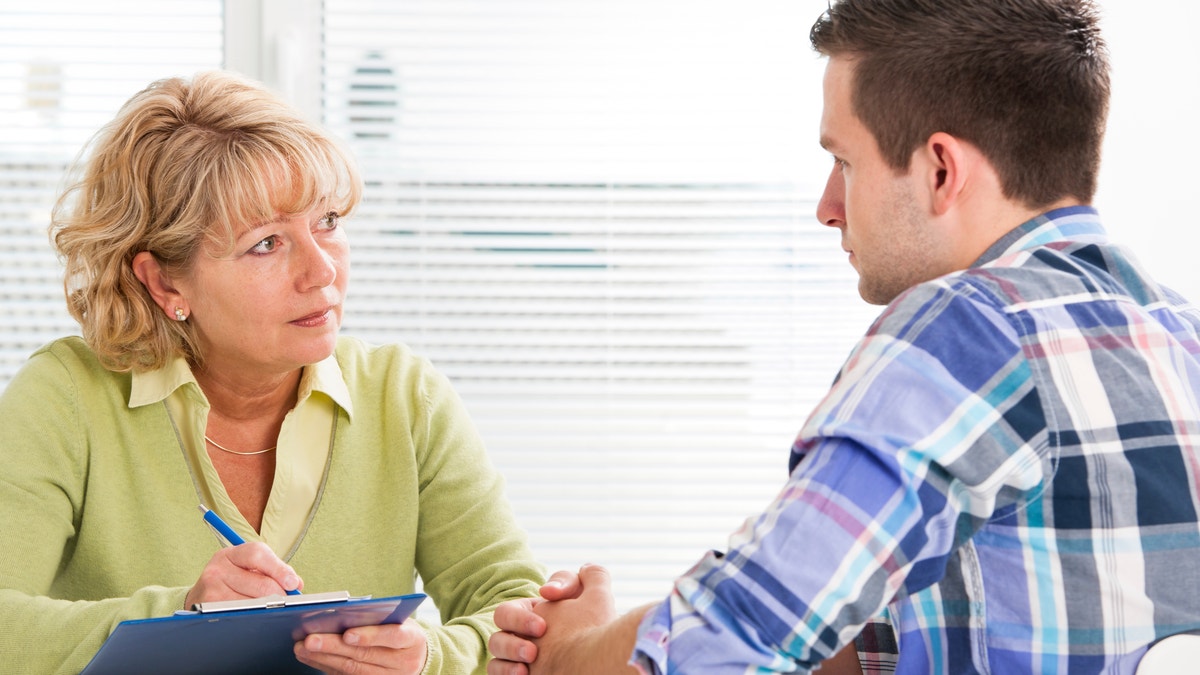
doctor talking to her male patient at office (iStock)
On a recent Thursday afternoon at Ohio State University, about 30 students sit in a classroom listening to instructor Kipp Pietrantonio lecture. “Imagine you were just handed your physics test, what would happen?” he asks.
“You sweat,” calls out one student.
“Your heart starts racing,” says a young woman.
“You get jittery,” answers another.
It is a meeting of the twice weekly “Beating Anxiety” workshop” and Dr. Pietrantonio is a clinical psychologist who works at the university’s counseling center. The workshop advises students to tackle anxiety by exercising, getting enough sleep and reframing catastrophic thoughts (if my friend doesn’t text me back right away, she hates me) in more logical ways (maybe she’s studying) among other strategies.
It is one part of Ohio State’s effort to cope with the dramatic increase in the number of its 59,000 students on the Columbus campus seeking help for mental health issues.
Ohio State has seen a 43 percent jump in the past five years in the number of students being treated at the university’s counseling center. At the University of Central Florida in Orlando, the increase has been about 12 percent each year over the past decade. At the University of Michigan in Ann Arbor, demand for counseling-center services has increased by 36 percent in the last seven years.
